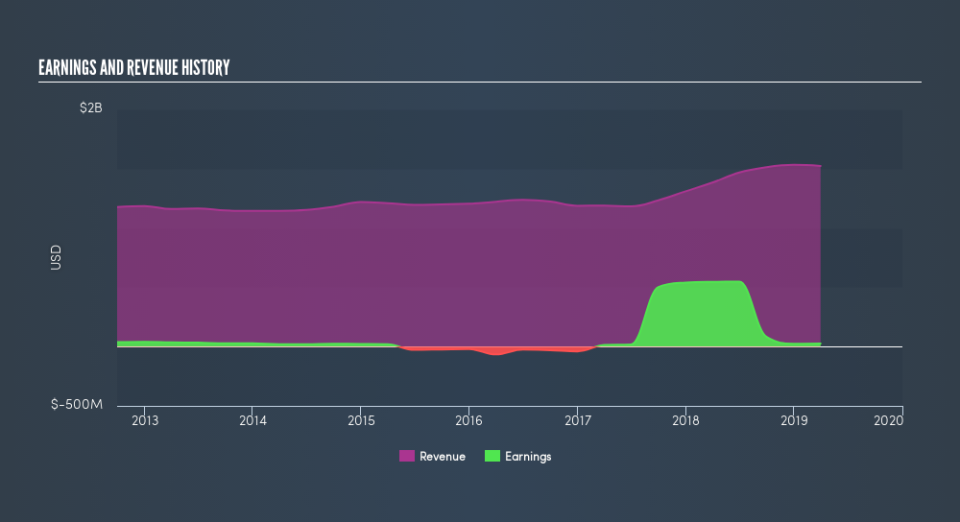Does The EnPro Industries, Inc. (NYSE:NPO) Share Price Tend To Follow The Market?

If you own shares in EnPro Industries, Inc. (NYSE:NPO) then it's worth thinking about how it contributes to the volatility of your portfolio, overall. In finance, Beta is a measure of volatility. Volatility is considered to be a measure of risk in modern finance theory. Investors may think of volatility as falling into two main categories. The first type is company specific volatility. Investors use diversification across uncorrelated stocks to reduce this kind of price volatility across the portfolio. The second sort is caused by the natural volatility of markets, overall. For example, certain macroeconomic events will impact (virtually) all stocks on the market.
Some stocks are more sensitive to general market forces than others. Beta is a widely used metric to measure a stock's exposure to market risk (volatility). Before we go on, it's worth noting that Warren Buffett pointed out in his 2014 letter to shareholders that 'volatility is far from synonymous with risk.' Having said that, beta can still be rather useful. The first thing to understand about beta is that the beta of the overall market is one. A stock with a beta greater than one is more sensitive to broader market movements than a stock with a beta of less than one.
Check out our latest analysis for EnPro Industries
What does NPO's beta value mean to investors?
Zooming in on EnPro Industries, we see it has a five year beta of 1.8. This is above 1, so historically its share price has been influenced by the broader volatility of the stock market. Based on this history, investors should be aware that EnPro Industries are likely to rise strongly in times of greed, but sell off in times of fear. Share price volatility is well worth considering, but most long term investors consider the history of revenue and earnings growth to be more important. Take a look at how EnPro Industries fares in that regard, below.
Could NPO's size cause it to be more volatile?
EnPro Industries is a small company, but not tiny and little known. It has a market capitalisation of US$1.3b, which means it would be on the radar of intstitutional investors. It's not particularly surprising that it has a higher beta than the overall market. That's because it takes less money to influence the share price of a smaller company, than a bigger company.
What this means for you:
Beta only tells us that the EnPro Industries share price is sensitive to broader market movements. This could indicate that it is a high growth company, or is heavily influenced by sentiment because it is speculative. Alternatively, it could have operating leverage in its business model. Ultimately, beta is an interesting metric, but there's plenty more to learn. In order to fully understand whether NPO is a good investment for you, we also need to consider important company-specific fundamentals such as EnPro Industries’s financial health and performance track record. I urge you to continue your research by taking a look at the following:
Future Outlook: What are well-informed industry analysts predicting for NPO’s future growth? Take a look at our free research report of analyst consensus for NPO’s outlook.
Past Track Record: Has NPO been consistently performing well irrespective of the ups and downs in the market? Go into more detail in the past performance analysis and take a look at the free visual representations of NPO's historicals for more clarity.
Other Interesting Stocks: It's worth checking to see how NPO measures up against other companies on valuation. You could start with this free list of prospective options.
We aim to bring you long-term focused research analysis driven by fundamental data. Note that our analysis may not factor in the latest price-sensitive company announcements or qualitative material.
If you spot an error that warrants correction, please contact the editor at editorial-team@simplywallst.com. This article by Simply Wall St is general in nature. It does not constitute a recommendation to buy or sell any stock, and does not take account of your objectives, or your financial situation. Simply Wall St has no position in the stocks mentioned. Thank you for reading.

